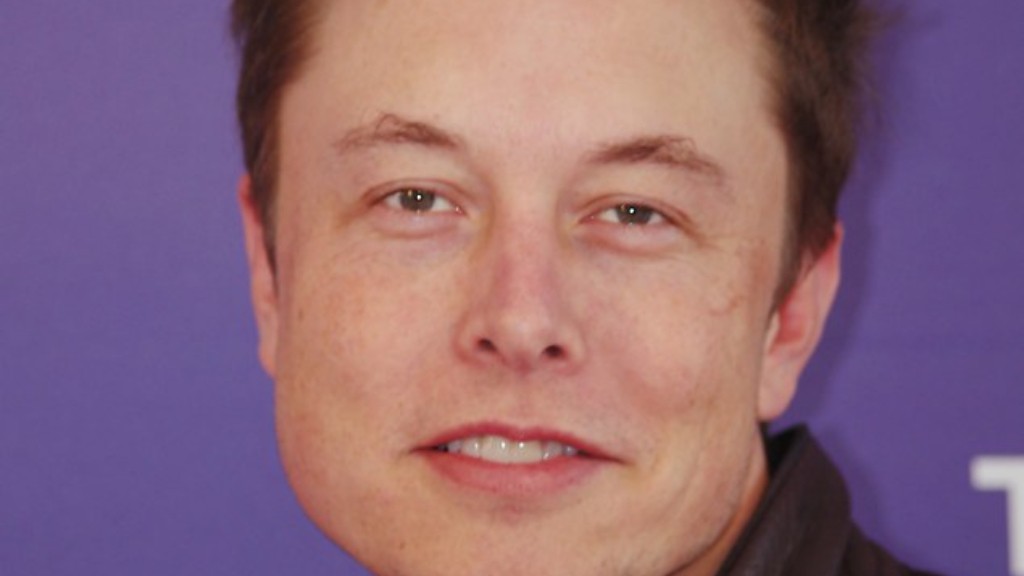Elon Musk’s brain chip is an artificial intelligence-enabled neural implant and platform designed to be used within the human brain. Developed by Musk’s neuroscience company, Neuralink, the technology is intended to help people with a variety of brain disorders and injuries, and to enhance neurological functions for natural applications. The brain chip is expected to be available for use in humans as soon as 2021.
Whether DNA, nanobots, or brain chips, humanity is on the brink of major advancements in the field of technology. Elon Musk is one of the foremost innovators in the industry and is part of an ever-growing trend of entrepreneurs and scientists developing brain implants. They hope to improve current brain-computer interfaces and open up new possibilities for a wide range of purposes, ranging from medical treatments to enhanced capabilities.
The proposed idea behind Elon Musk’s brain chip is to provide a fully implantable, ultra-low-power, wirelessly powered neural interface that would give users direct control over any computer, phone or robotic device, as well as enable them to access external data sources and media. At the heart of the technology is a tiny chip that would be implanted in the skull and would be able to detect, interpret, and transmit electrical signals from the brain to the device. The chip would also be able to record electrical signals from the brain, with Musk estimating that it could be used to record data at the rate of 1 terabyte per second, enough for an entire human life.
Though the technology is still in the early stages of development and it is uncertain how it will be used, it is an intriguing concept. The potential applications of the technology are far-reaching and could be used for many medical and non-medical purposes. For example, the brain chip could be used to restore motor function in patients with spinal cord injuries, control prostheses, or even stream media directly from the internet to a user’s brain.
The technology has raised both excitement and concerns among consumers and experts alike. Some experts in the field question the safety of the chip, as it is not known if it would be able to interfere with or disrupt the delicate electrical systems of the brain. Others are concerned about the ethical implications of controlling external devices with the brain. Nonetheless, experts agree that it is an exciting area of research that could open up an entirely new world of possibilities.
Security Concerns
Though they are widely embraced, AI-enabled neural implants raise many ethical and security issues. The interface created between a user’s brain and a device has the potential to make them vulnerable to cyber attacks and data breaches—especially if the brain chips can be hacked. Consequently, a major concern is the potential for malicious actors to gain access to personal data stored in the brain, or even to the user’s thoughts and memories. To address this issue, it would be crucial for Neuralink to develop robust security protocols and advances in encryption architecture in order to minimize the risk of unauthorized access.
In addition, there is the issue of the autonomy of users with brain chips. Neural implants can allow external sources, such as companies or government entities, to access and manipulate the user’s mind. This raises questions about the potential for forced control of individual behaviours through the manipulation of neural signals. To ensure the safety and autonomy of users, a rigorous set of regulations for the technology should be implemented in order to limit potential human rights violations.
Potential Benefits
The potential benefits of Elon Musk’s brain chip could be far-reaching. Not only could it be used to help restore physical and neurological functions in people with injuries and disorders, it could also be used as a platform to develop new treatments and therapies. For example, the chip could be used to improve decision-making abilities or enhance memory and focus.
In addition, research has suggested that the chip could be used to augment cognitive abilities and enhance certain skills. For example, it could be used to increase intelligence and stimulate creativity, or even connect people’s brains to external sources of information, such as the internet.
And, it could enable a connection between human minds by allowing two people with brain chips to communicate directly. With a new language and new ways of expressing their thoughts, communication could be taken to an entirely new level. Such an advancement could revolutionize the way we communicate in the future.
Implications for Society
Though the potential benefits of Musk’s brain chip are vast, the implications for society are significant and not to be taken lightly. It is important to consider the potential risks posed to individuals and society as a whole, from cyber security and privacy concerns to potential ethical violations. Moreover, the implications for inequality and the potential for the technology to be used to document and control the human mind should be carefully investigated and debated.
Ultimately, it is important to consider the potential benefits and risks of new technology, and to assess the advantages and disadvantages carefully. With the right precautions in place, Elon Musk’s brain chip could provide an innovative platform that could change the way we think and live, and help us reach new heights.
Privacy Concerns
When considering a brain chip, there is an additional issue of privacy, which is central to many of today’s debates around new technologies. In particular, if the technology is used to access and share user data, it could have significant implications for data privacy, security, and autonomy. Thus, it is critical to develop clear regulations and safety protocols so that data is securely kept and individuals remain in control of their own data and decisions.
The potential for companies to use the technology for marketing and advertising purposes is also a concern. As consumers become used to the convenience of brain chips, companies may attempt to gain access to user data in order to better target and manipulate customers. To protect against such attempts, it is essential to create legislation to prohibit companies from using the technology for such means.
Artificial Intelligence Integration
For the technology to reach its full potential, it needs to be integrated with advances in artificial intelligence (AI). Musk has already proposed that an AI assistant could be built into the chip as an automated assistant, allowing users to use the chip more efficiently. This would involve incorporating advanced AI algorithms into the chip and would enable it to learn and respond to the user’s needs and intentions.
By combining AI with Musk’s brain chip, users could increase their capabilities and enhance their abilities over time. AI could also be used to detect and prevent potential cyber-attacks, ensuring that users remain in control at all times. Consequently, it would be important to develop robust AI algorithms that are secure and reliable, and that protect the privacy of users at all times.
Future Prospects
With all the potential applications of the brain chip, there is no telling what the future holds. The technology could have an immense impact on healthcare, education, and business. For example, AI-based learning systems could be developed for use in the classroom, and the technology could be used to create prosthetics and other medical devices to restore functions lost due to injury or illness.
Moreover, Musk has proposed that the chip could be used to open up the world of virtual reality and augmented reality to the general public. This could create an entirely new way of interacting with the world, and could potentially revolutionize how people interact with technology.
Ultimately, the future of the technology remains uncertain, but the potential applications and implications of Elon Musk’s brain chip are exciting. The technology could potentially revolutionize how we live and interact with our environment, and could open up an entirely new world of possibilities.



